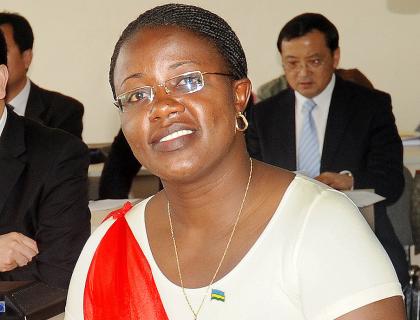Students from the Kigali Institute of Technology (KIST) pointed out ignorance as the major cause of unwanted marriages amongst the youth, urging for more sensitization on the use of contraception.


Students from the Kigali Institute of Technology (KIST) pointed out ignorance as the major cause of unwanted marriages amongst the youth, urging for more sensitization on the use of contraception.This was during an open debate at the institution’s campus which also attracted several officials from the health sector, and was officiated by Rector Jeanne d’Arc Mujawamariya."It is obvious that many young people are ignorant about family planning methods and the use of contraceptives. That is why they engage in unprotected sex and get unwanted pregnancies. If they knew about these methods, perhaps they would use them and change the trend,” Joshua Tahinduka, a student of Electronics and Telecommunications, said.However, Esther Nkuze, a construction management student argued that ignorance is far from being the main cause of early pregnancies."Studies indicate that even in developed countries like the US, early pregnancies do occur. In my opinion other factors such as easy access to pornography and peer pressure have undermined the use of contraceptives” Nkuze said.Mujawamariya, a former minister of Gender and Family Promotion, urged the youth to always measure the impact of choices they make. "What you do in five minutes can ruin your entire life. Therefore, both boys and girls must think twice and value their lives by not engaging in unprotected sex.” "Fighting unplanned for pregnancies goes hand in hand with fighting against HIV/Aids. Students face a lot of pressure as well as misinformation from some of their elders, and when they get in trouble, they think that they are outcasts."However if it happens that you get pregnant, you should not allow to be pressured into carrying out abortion; the pregnancy may have been unplanned, but the baby deserves to live; you can be given assistance,” she added.According to 2008 UNICEF statistics, out of 1,000 adolescent girls, 46 get pregnant between the ages of 15-19.In July, last year, a report by the National Women Council, indicated that in Gicumbi District alone, 56 school girls were found pregnant, 21 of whom were under 18 years.






